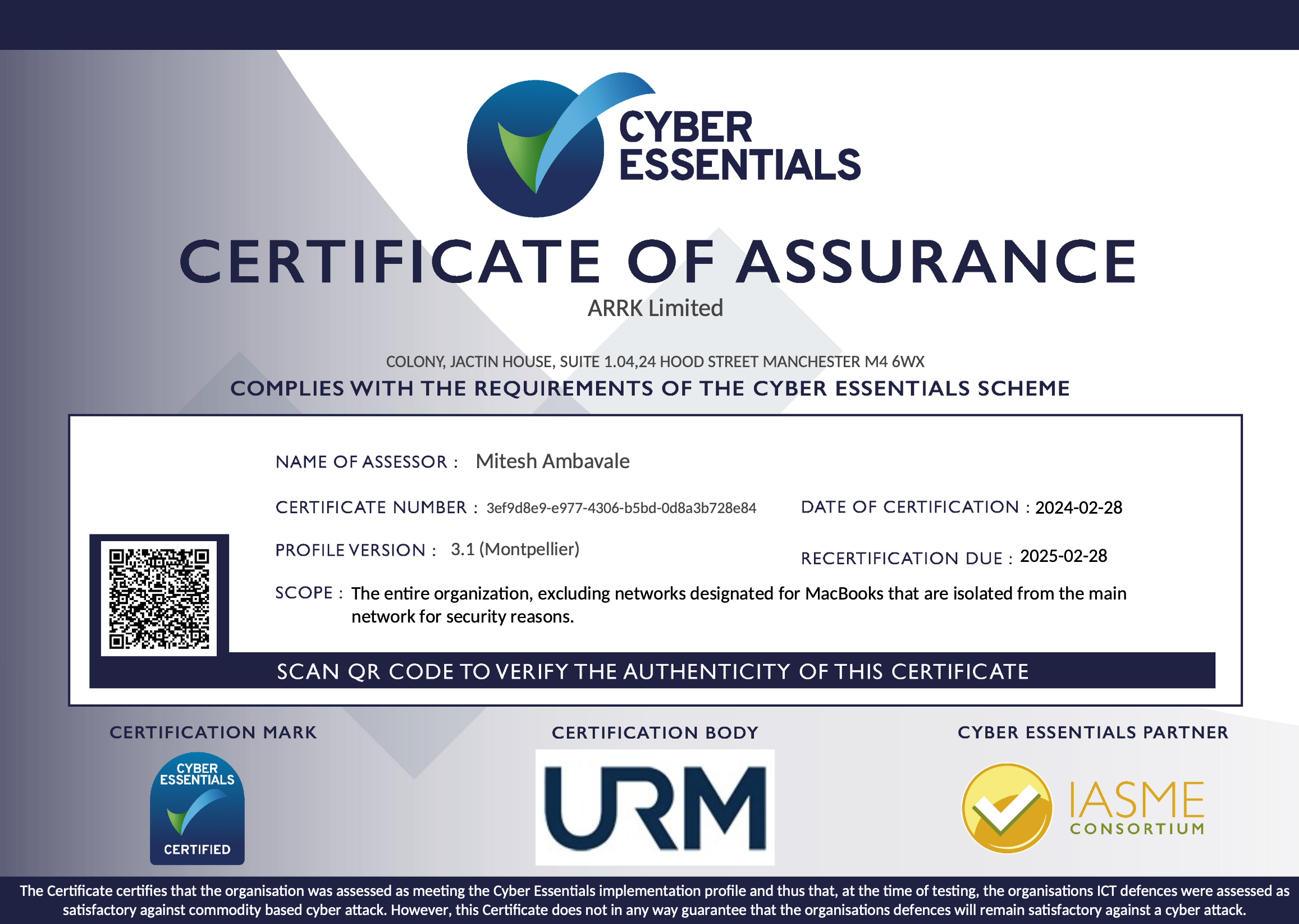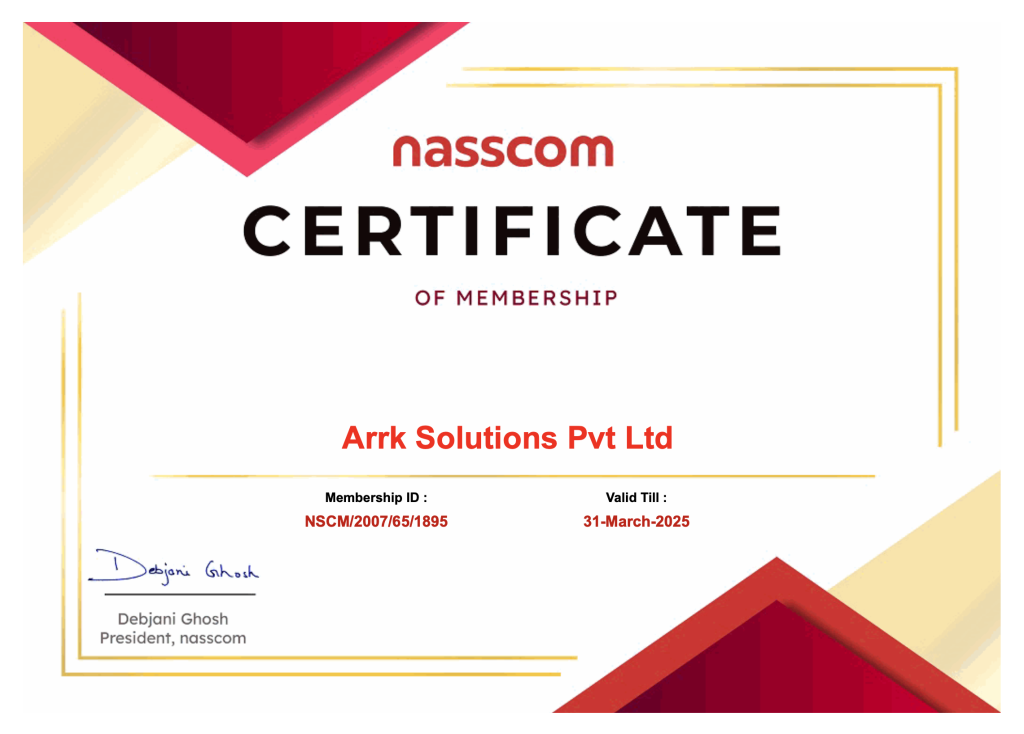-
Focused Service Offerings Portfolio
Arrk has embraced evolving technologies and team dynamics in AI/ML, cloud computing, and remote or distributed working. The company has integrated these advancements with innovative delivery methods. This approach ensures efficiency while maintaining quality and delivering value to customers. Please click here to explore more: https://www.arrkgroup.com/services -
Surviving Covid and Embracing New Technologies
During the Covid-19 pandemic, Arrk adapted lean management practices to optimise resource utilisation, ensuring efficiency for both the organisation and its clients. The transition to remote working, alongside advancements in emerging technologies such as AI and ML, created new business opportunities, which Arrk carefully leveraged to expand its service offerings. -
Tech Joint Venture Digital Platform
Arrk began its journey by delivering comprehensive cloud-based online digital platform development, hosting, and support services. The platform was designed to cater to brand promotions, advertisements, and discounts tailored specifically for the UK student market. It has since been upgraded to keep pace with the ever-evolving online digital practices and engagement strategies, addressing diverse B2B and B2C scenarios.
Data Security First
Arrk began advocating the early adoption of data security measures compliant with the GDPR rollout across all phases of the software development lifecycle. Arrk introduced a data-security-first approach in its software development, hosting, and support practices, ensuring seamless and trouble-free operations for its customers. -
E-commerce Platform
Arrk's social media journey quickly expanded into the e-commerce sector, providing innovative solutions for membership-based online purchases, payments, and settlements. This laid the foundation for Arrk's position in the evolving digital commerce landscape. -
Partnership with a Leading Student Union
Arrk embarked on its social platform journey by partnering with a leading student union in the UK, serving over 50 universities and a million students. -
Major BFSI Contract
Arrk secured a major VodC contract with a prominent consumer finance subsidiary of a large US bank, further expanding its footprint in the financial services sector. -
Technology-driven Partnership 2
Arrk established a technical development partnership with a UK-based microfinance company specialising in customer ID checks, digital contracts, and vault services. Arrk delivered comprehensive development services alongside cost-effective 24/7 support, strengthening the partnership and further advancing its product and platform development practices. -
Technology-driven Partnership 1
Arrk formed a technical partnership with a UK-based startup specialising in network and server monitoring tools, ensuring safe, stable operations and accessibility. The collaboration focused on offshore development and cost-effective 24/7 support, enhancing the capabilities of both companies and laying the foundation for future product and platform development practices. -
The Credit Crunch
During the global credit crunch, many of Arrk's customers, particularly in the Banking, Financial Services, and Insurance (BFSI) sectors, were affected. In response, Arrk swiftly adopted lean practices, resulting in substantial cost savings for both the company and its clients, transforming a challenging period into a mutually beneficial outcome. -
Another Milestone Contract
Arrk advanced its VodC practices by reflecting on the challenges encountered. The company secured a second milestone contract with a leading UK-based vehicle leasing and financing company, amidst fierce competition, marking another achievement in its growing portfolio. This project involved over 50 team members working across multiple locations, tech stacks, and workstreams. -
New Office
Arrk took a major leap by acquiring a 200-seat facility and setting up a cutting-edge development centre in India. -
Secured a Milestone Contract
Arrk secured a significant IT services contract with a UK auto insurance firm, outpacing its competitors. The project was successfully delivered by deploying a blended team of over 75 onshore and offshore professionals with diverse tech stacks across multiple workstreams. -
Expansion into India
Following the successful navigation of the Y2K and DotCom crises, Arrk expanded its operations to India. The company established an Indian subsidiary, introducing its innovative VodC-based technical service delivery model and marking a significant step in its global growth. -
The Beginning
Arrk's journey began in the home of its founder, Julian. Driven by a vision to deliver valuable technical solutions, Julian set out to meet the needs of UK-based customers, laying the foundation for what would become a pioneering company.
We enable organisations to disrupt their markets through digital innovation




